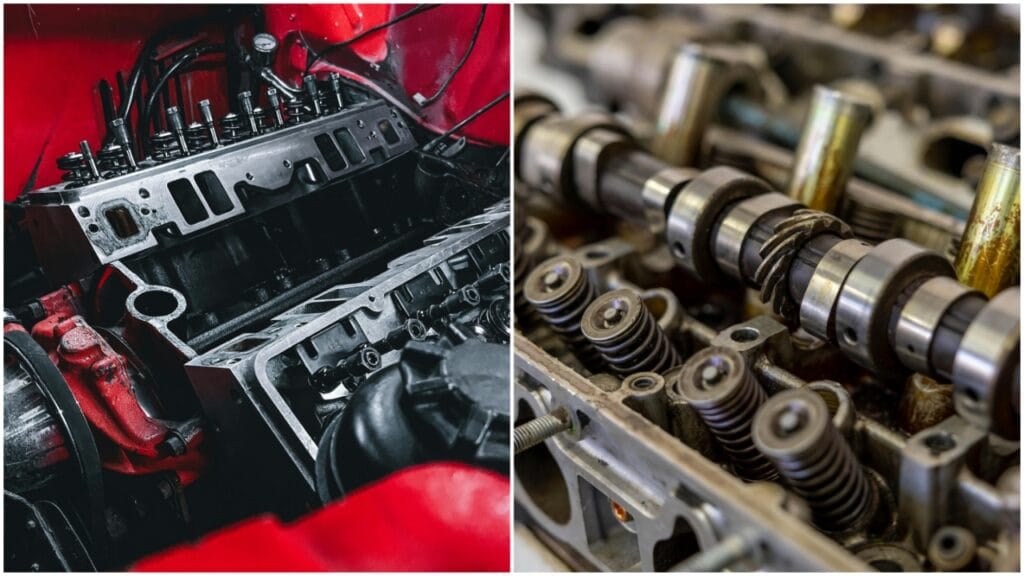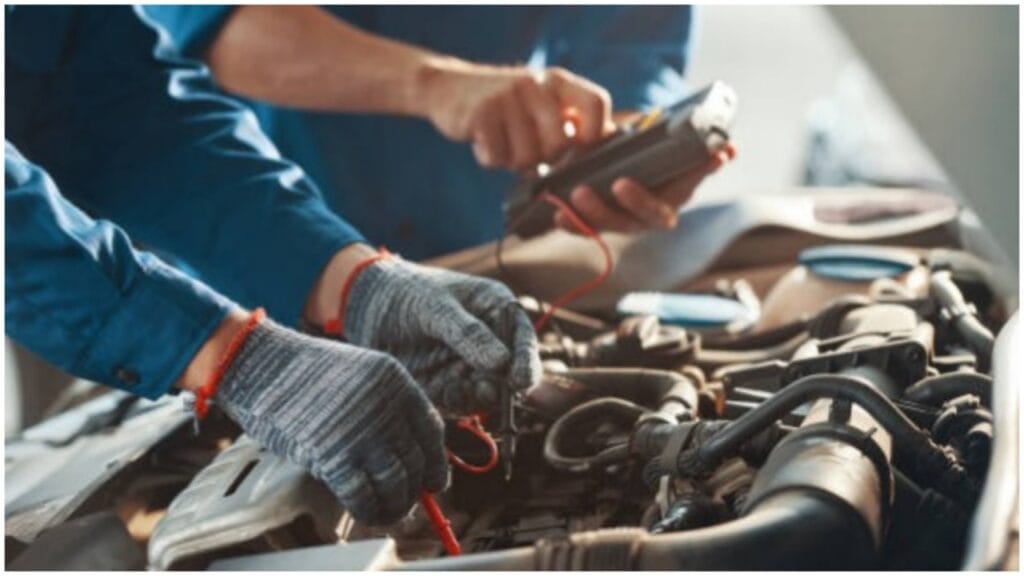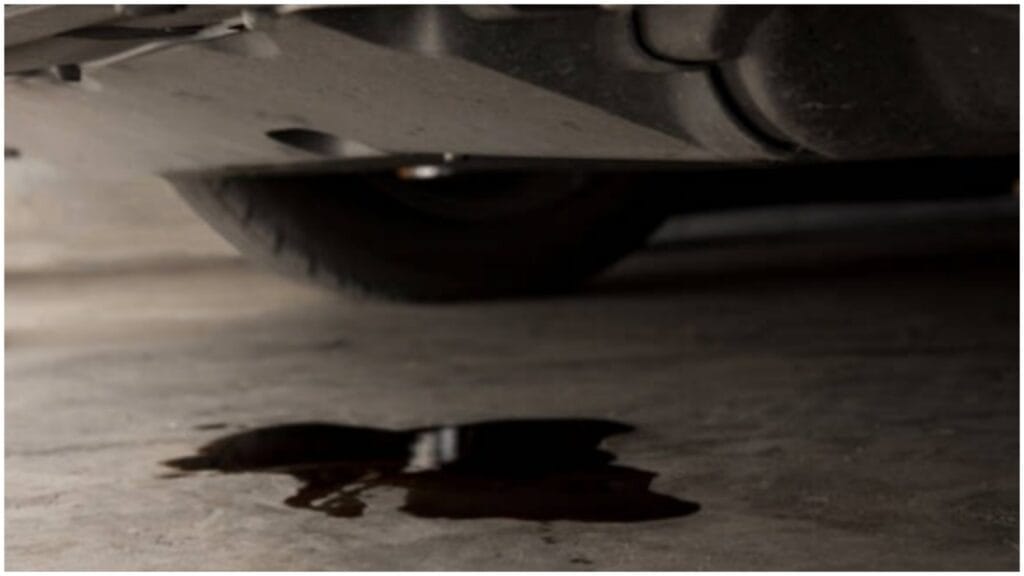Spotting serious car problems early can save you from breakdowns, sky - high repair bills, and even accidents. Don't brush off warning signs; ignoring them often turns small fixes into major disasters. Start by assessing the risk - if it's brakes failing, overheating, or anything safety -related, pull over safely right away and shut off the engine.
For odd noises, dashboard lights, or shaky handling, book a mechanic ASAP. Stay ahead with regular fluid checks, part replacements, and gut instincts - minor glitches can signal big trouble. Ready to learn how to spot the difference between a quick tweak and a thousand-dollar nightmare? Let's dive in.
The Engine: Your Car's Heartbeat

Let's start with the engine. It's the heart of your car, and if something's wrong, you have a severe problem. Here's the deal: Your engine should hum quietly without much drama. If it starts making knocking or grinding sounds or stalls without warning, it's time to pay attention.
A sputtering engine can indicate issues like a bad fuel injector, worn-out spark plugs, or a failing fuel pump. If left unchecked, a dying engine can become a huge, expensive problem. Don't ignore the signs—check it out before you're stuck somewhere with no way to start your car.
Transmission Troubles: Slipping Gears and More
Transmission failure ranks among the priciest repairs, often costing thousands for a rebuild or replacement. Spot the signs early to avoid getting stranded.
- Trouble shifting gears or slipping out of gear
- Whining noise during acceleration
- Hesitation when speeding up
- Gears feeling "sticky" or delayed
- Action: Get it inspected immediately - don't drive if slipping occurs.
Brakes: A Non-Negotiable Safety Issue

Bad brakes aren't a glitch; they're a life-threatening hazard. Never ignore them - failure can strike without warning.
- Squeaking or grinding noises
- Soft, spongy brake pedal
- Worn brake pads or low fluid
- Issues with calipers or lines
- Action: Pull over and tow if unsafe; repair ASAP for safety.
Overheating Engine: A Silent Killer
You're driving, and everything seems fine, but the temperature gauge suddenly spikes. The engine overheats and your dashboard lights up like a Christmas tree. That's when you realize something's not right.
Overheating can be caused by various things, such as a coolant leak, a broken thermostat, or even a malfunctioning radiator.
Whatever the cause, you want to address overheating as soon as possible. If you ignore it, you risk doing permanent damage to your engine. And trust me, replacing a motor is no cheap fix.
Electrical Issues: The Phantom Menace

Electrical issues in cars are notoriously tricky. One day, your headlights work fine; the next, they flicker and fail. Your power windows stop moving, the AC strikes or your car does not start. These problems might seem minor, but they can quickly become major headaches.
Electrical issues could be faulty wiring, a failing alternator, or a dead battery. If your car won't start at all, or if multiple electrical components seem to be malfunctioning, it's a sign you need to get your electrical system inspected. Ignoring these issues could leave you stranded at the worst possible time.
Suspension Woes: Rough Rides and Bumpy Roads
If your car feels like riding rough or bouncing uncontrollably after hitting a bump, your suspension system might be the culprit. Worn-out shocks or struts can cause your vehicle to handle poorly and make the ride uncomfortable.
If the suspension is ignored over time, it can lead to more severe issues, such as uneven tire wear, poor handling, and misalignment.
The suspension is critical to your car's stability, so don't ignore odd sounds or sensations when driving. Check your suspension if your car sways or bottomscar's out when you go over bumps.
Exhaust System Problems: A Cloud of Trouble

Let's remember the exhaust system. If your car starts sounding louder than usual or if you notice strange smells (like rotten eggs), it could mean there's a problem with your exhaust or catalytic converter.
A clogged catalytic converter can seriously affect your car's performance and fuel efficiency and be expensive to replace. If you're hearing a loud, rumbling noise or smelling unusual odors, it's time to take your car to a mechanic.
Tires and Alignment: Unseen Wear
Tires might seem like the least glamorous part of your car, but they're critical. If your tires are bald, worn unevenly, or losing air, you're setting yourself up for trouble. Bad tires compromise your safety and affect your car's handling. Misalignment, uneven tire pressure, and poor tread can contribute to poor driving performance and unnecessary wear.
If your steering wheel starts pulling to one side or your tires look visibly worn out, it's time for a tire inspection. Also, ensure your car is aligned correctly - this can save you money in the long run by preventing uneven tire wear.
Fluid Leaks: The Slow Drain

One of the more sneaky car problems is fluid leaks. Any leak in your car can become a significant issue, whether it's oil, coolant, brake fluid, or power steering fluid. Sometimes leaks are slow, and you might not notice immediately, but a small leak can cause a system failure over time.
Take action if you find puddles of fluid under your car or notice any warning lights on your dashboard related to fluid levels. Low fluid levels can cause severe damage to your engine, brakes, or transmission if not addressed.
Conclusion
These car issues aren't just annoyances - they're warnings of potential catastrophe. From engine knocks to fluid leaks, addressing them early keeps your ride reliable and your wallet intact.
Don't gamble with "it'll fix itself"; get it inspected promptly to avoid the worst. Treat your car right, and it'll reward you with smooth miles ahead. Hear something off? Feel a strange vibe? Act fast - your future self (and bank account) will thank you.
Common FAQ's
Common car problems like transmission slipping, whining gears, or sticky shifts signal failure - costly to fix. Brake squeaks, spongy pedals mean worn pads or fluid issues, a safety risk. Spot early: inspect ASAP, replace parts promptly for safe, affordable solutions.
Most common car problems hit hard: transmission slipping or whining gears, brake squeaks with spongy pedals, and sticky shifts. These signal costly failures or safety risks. Spot them early - inspect immediately to avoid breakdowns and huge repair bills.
Common car repair problems include transmission slipping, whining gears, sticky shifts, brake squeaks, and spongy pedals. These lead to pricey fixes or safety hazards. Catch them early - inspect ASAP to prevent breakdowns and save thousands on repairs.

